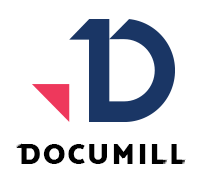Terho Laakso, VP of Business Development, Documill dives into the benefits of cloud-based document processing services in this recent chat while taking us through his thoughts on growing business returns in the new normal….
____
Can you tell us a little about yourself Terho? We’d like to know about Documill’s core offerings and how they have evolved over the years..?
I am Vice President of Business development at Documill. I am keen on helping businesses to grow by applying new technologies and service models. My passion is to turn novel ideas into tangible business results. I have been doing this now since 2008 at Documill. Before this, I worked at IBM on Strategic Outsourcinig..
As for Documill, we are a leading provider of sales-focused collaboration and document processing services, including document automation for Salesforce. Our products are used by some of the world’s largest online service providers & enterprises helping millions of end-users.
Read More: SalesTechStar Interview with Li Kang, Head (North America) at Kyligence
How have you seen sales document management and processing platforms evolve over the years? What are some of the predictions you have for this niche for the near future?
At the moment we are at an exciting phase, thanks to recent development in few areas: first the trend of enterprise customers moving from on-premise to cloud services. Second, user experience and extendability of applications have become more and more important for enterprise users. They expect their enterprise solutions to work as smoothly as their individual productivity tools like Slack and MS Word.
These trends create opportunities for us to create cloud-based document processing solutions from creation to signing documents – solutions that can be embedded right into enterprise platforms like Salesforce.
We have seen standalone services having first focused on managing documents and making them available. Contract lifecyle management (CLM) solutions are good examples of one centralized contract storage solution for enterprises. On top of those archiving solutions, some document generation capabilities have been added to improve productivity and ensure quality.
Some of these basic document management capabilities are also coming to enterprise platforms like Salesforce. Our take on this trend is to take advantage of core capabilities of these platforms and add missing pieces to enable customer-facing document processing from collaboration within and across companies, all the way to e-signing.
Can you talk about some of the most innovative features and technologies driving better sales contract and document management and processing today?
For us the real excitement is in the way we can use CRM to boost collaboration in business. This covers both internal collaboration happening between internal teams, as well as external collaboration with customers and partners.
Take contracts, for example. The creation of standard contracts is often automated, but still a large number of them is way too specific to be automated. If you think about your most valuable enterprise contract – those have to be negotiated in close collaboration, clause by clause, detail by detail, by teams that on both the buyer’s and seller’s side, often residing in different parts of the organization. There may be people involved from delivery, services, customer success, marketing and sales or procurement. According to recent studies about 5-6 people are typically included it such negotiations from both sides of the table. We want to support this demanding process by providing structure with workflows, keeping things moving foward with automated task management, engaging participants to negotiate using real-time collaborative editor and finally completing the process with e-signing.
In what ways will providers and innovators in this niche need to adapt to serve changing needs of the new normal across industries?
The new normal is naturally something that has evolved over the years. I see three key drivers for it:
- Increased collaboration between companies that now concentrate on their core competencies, all the secondary ones are getting outsourced to their trusted partners.
- Big data, especially customer data. It has to be interpreted in a relevant way and put to a context where it makes sense.
- Online connectivity is a must in current COVID19 situation. This is requirement for online collaboration to work, and as such will define how enterprises work with contracts in the future.
If we look at all this from the perspective of sales, there are simply more and more relationships involving sales between businesses. They are increasingly going online, involving more data and remote collaboration.
Read More: SalesTechStar Interview with Elizabeth Brockey, Chief Customer Officer at Simpli.fi
How are you seeing adoption trends for these tools be impacted by the Covid-19 pandemic?
For one, thing COVID-19 is a major nuisance to all of us. But negative conditions often generate some long-term positive developments among all the trouble.
With COVID-19, adoption of online connections got faster, especially in education and healthcare sectors. Face-to-face meetings and daily commuting are replaced by video calls and online collaboration. Also those who previously did not use these services have just had to learn and adopt them.
Being in a sales leadership role, we’d love to hear about your biggest takeaways sales, customer success, marketing teams should grab from this entire experience of working and living through a global pandemic? What are the top learnings you feel sales reps in tech should keep in mind from the year 2020?
Get your online customer experience together and to the top. You have now the tools to connect all your customer-facing people even in the larger organizations: delivery, services, customer success, marketing and sales, naturally.
First, ensure that you are all orchestrated to play the same song. Agree on responsibilities, eliminate overlapping tasks, get the same information for everybody, hone your common strategy and tactics. Ensure you have a common goal and everybody is really working towards it.
Making it happen is a gradual job and will take time, so start implementing this approach early on also with your online customers. Use collaborative tools to reach across teams and over company lines, also to your partners. Use and share all the data you have across your teams for the best results.
It is our job as application and solution provider to ensure that you have the right tools in hand. So send us feedback too! Then we will be able to help you serve your customers even better. This is not where we are going to stop.
A few parting thoughts you’d share with sales teams and sales executives to help them improve their sales outreach, prospecting efforts during this downtime?
I believe that when we will be finally relieved from COVID-19, business users will not get back to face-to-face interaction like before. The benefits of online are simply too great to be overlooked: time saved, cost saved, boring routines reduced by automation.
Read More: SalesTechStar Interview with Todd Barnett, Chief Revenue Officer at Drift
In fact, there will be a big question of competitiveness in terms of spending and costs. When there now are more companies repeating the cost and productivity benefits of online collaboration, everyone will eventually have to do it to stay competitive. The trend will grow anyway, so better embrace it right now!
Terho Laakso is the VP of Business Development at Documill
Explore the State of Technology Sales and Tips to Streamline Marketing and Sales Efficiencies with Leaders from Zilliant, Pipedrive, TeamViewer, Acoustic and more!






















